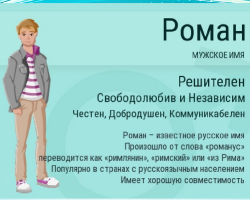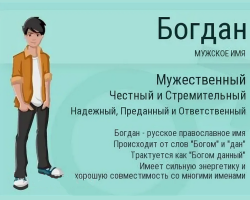What is postpartum depression, by what signs can it be recognized in yourself and others? An article on methods of treating postpartum emotional decline.
Content
- Symptoms of postpartum depression
- Why does postpartum depression occur?
- How to recognize postpartum depression?
- How long does postpartum depression usually last?
- Stages of postpartum depression
- How to leave the postpartum depression yourself?
- How to behave with a protracted postpartum depression?
- How to avoid postpartum depression?
- Will the folk remedies survive postpartum depression on their own?
- How to leave the postpartum depression yourself: tips and reviews
- Video: postpartum depression: myth or reality?
Postpartum depression occurs in 10-15% of young mothers, and half of them have a severe form of the disease. Postpartum depression must be treated, because a protracted disease threatens the most severe form of course, and in some cases - suicide or harm to the child.
Symptoms of postpartum depression

- depression
- anxiety
- sensation of inner emptiness
- increased irritability
- loss of interest in life
- the emergence of a large number of inferiority complexes
- constant feeling of guilt
- reducing interest in the child
- feeling a bad mother
- bloodiness
- deterioration of appetite
- memory deterioration
- absent -mindedness
- frequent mood change
- sleep disturbance
- permanent physical impotence
Why does postpartum depression occur?
Important: cases of postpartum depression were recorded in the 4th century. But in the modern world, this violation has become special distribution.
Doctors continue to study this ailment, and if its signs and methods of treatment have been established, then the clear causes of the disease are still a mystery. Emotional decline after childbirth is observed in a variety of women who are often not interconnected by neither transmitted diseases nor living conditions. Scientists are still in search of a kind of algorithm that leads or does not lead to depression after childbirth.

Among the biological causes of the disease, malfunctions in hormonal background and logical physical exhaustion in the first weeks after the birth of a child are called. They also note the psychological grounds, which include the predisposition of the mother to emotional disorders, the difficult conditions in the family of a woman, her unpreparedness to motherhood, and a feeling of disappointment.
Important: the development of postpartum depression does not depend on the financial situation of the mother and her family. There are cases of disease in royal families, among pop stars and very rich people. For example, Princess Diana suffered from emotional decline.
Along with the usual postpartum depression, the disease of our time is already called. Doctors are trying to understand why such a high percentage of sick people today. This is probably due to the way of life that modern people lead - researchers have come to this conclusion. The rhythm of human life today is not just fast, but often exhausting.
Over the past century, striking changes have occurred in the life of women. Now, in addition to motherhood and the arrangement of the hearth, a woman must realize herself as a person and build a career. Career achievements, the desire to achieve independence and assert themselves complicating the receipt of sincere joy from the birth of the baby.

With the advent of the child, a woman has to radically change her life, leave in the past everything made of her life. If maternal instincts do not block the pain of loss, fertile ground occurs for the development of depression.
Important: postpartum depression is a frequent phenomenon after a miscarriage or the birth of a dead child.
How to recognize postpartum depression?
To begin with, it should be noted that postpartum depression is not an ordinary spleen, but a serious mental disorder. Handra lasts several days or weeks, can be accompanied by similar symptoms - tearfulness, physical fatigue, mood swings, insomnia, impaired food behavior, etc. But with all these unpleasant manifestations you are not left by the feeling of happiness from the birth of the child and the joy of life in general. You do not want to throw everything and run away or lower your hands, turn to the wall and do nothing.
Important: in total, 3% of women with depression after childbirth, this disease is diagnosed. Be attentive to yourself and your familiar pregnant women.

Often, the postpartum decline begins to manifest itself during pregnancy-at the very last stage, when the child is about to appear. The woman becomes passive, detached, she has the feeling that she is unable to control the situation. The same symptoms may have natural alarm, but it is still worthwhile to worry with such a state and trace its change in the future.
Almost every person has the image of a young mother. This is a happy, smiling, beautiful woman who presses to her chest and kisses the clean, pink -cheeked baby. Nearby, as a rule, a satisfied spouse. These are the most joyful people in the world, and outwardly it is unlikely that difficulties await them ahead.
The birth of a child is always serious changes, many worries, pleasant and not very, stress. Do not identify yourself with this picture in your head, in reality everything will be wrong. Of course, you will be happy with your spouse and your child, but it is a comparison of yourself, tired, tearful, disheveled, with a fictionally happy mother, often causes the development of postpartum depression.

To diagnose the disease, you need to sensitively listen to yourself. The multiple problems that will fall at you with the birth of the baby can be unstable, make you irritable and tired, violate your sleep and appetite.
But if at the same time you experience depression, a loss of interest in life, an unwillingness to spend time with a child, and in some cases hatred for him, be sure to inform your husband or relatives about your condition. If you are not heard, go to the doctor. Today, postpartum depression is a fairly common disease, and the doctor will help you cope with him with advice and medicines.
Important: the vast majority of women are afraid to admit that they have found symptoms of the disease. They consider themselves a bad mother and experience a strong feeling of guilt.
How long does postpartum depression usually last?
The first symptoms of postpartum depression may occur during pregnancy. This is physical and mental depression, unwillingness to control the process. Many women develop spleen after childbirth, but it passes quickly. After several days or weeks of the spleen, real depression may occur. It may appear a few months later from the moment the child is born.

If you treat an emotional decline, it takes place quite quickly, the score goes for weeks or 1-2 months. If the disease is launched, then it flows into a severe form and can last for years. There are frequent cases when the child has already grown up and goes to kindergarten, and his mother still can’t cope with postpartum symptoms. The woman lives in hell, because she is forced to realize that she does not like her already grown up child.
Stages of postpartum depression
Postpartum depression can occur both in light and severe form. Conditionally, several stages of the disease can be distinguished:
- Handra is a condition in which most of the symptoms of depression are manifested, but you are not leaving the feeling of happiness about the birth of a child
- The initial stage of depression is an exacerbation of signs of the disease
- Deep depression. With a protracted violation, it may seem that the symptoms are faded. In fact, this is due to a change in your attitude to depression and the attitude of your loved ones to it. You get used to your condition and learn to put up with it, but the disease does not go anywhere

How to leave the postpartum depression yourself?
Important: only a qualified doctor can help to completely get out of depression. You can fight yourself only with the spleen or the lightest stage of the disease.
Here are some tips on how you yourself can defeat the postpartum emotional decline:
- Eat correctly. If you have no appetite or, on the contrary, you experience excessive hunger, make a special regime for yourself. Eat often and in small portions, at least 5-6 times a day
- Load yourself physically. Of course, this should be reasonable motor activity, taking into account your weakened state. As therapy, experts recommend daily 30-minute quick walking
- Learn to rest. It is not necessary to carry out all the care of the child himself. Transfer part of the duties to the husband and other loved ones. High -quality rest and especially sleep will help to significantly improve your condition
- Be open with a partner and loved ones. Share with them with your anxiety, tell us about everything that bothers you against the child and yourself as a mother. Support for family and friends will help you not be alone with your fears
- Contact more with other people, do not close in yourself. Lack of communication will only aggravate the symptoms
- Find a group of support for women who gave birth on the Internet or your city. Communication with the same mothers like you will become the necessary support for you on this difficult path of combating depression
- And the most important point, of course, is a doctor’s appeal. Realize the whole seriousness of your condition, understand that it will be very difficult for you to cope with the disease, and go to a certified psychotherapist

How to behave with a protracted postpartum depression?
Important: any form of mother depression negatively affects the child, because emotional contact is not established between the woman and the baby, which is necessary so that the child feels safe and develop correctly.

Peretnit depression is dangerous in that from year to year a woman is not able to take care of the child and raise him properly. When a young mother constantly fights inside herself, she, of course, cannot give anything to others, including her baby.
Here are some consequences that arise in children due to the depression of their mother. Child:
- it becomes alarming
- cannot correctly and naturally express his feelings
- cannot show its positive emotions
- does not express interest in the world around
- alienated from his loved ones and especially from the mother
- not contact with people
And this is only a short list of violations in the emotional sphere that expect a baby with a depressive mother.
Peretopic depression is characterized by the fact that the symptoms of the disease are smoothed out. It may even seem to others that you have no depression. Do not get used to your condition and learn to live with it. Visit a doctor as soon as possible and talk to him about your disorder.

How to avoid postpartum depression?
First you need to exclude the hereditary factor. Before pregnancy or during it, find out whether there have been cases of such a violation in your husband and family family.
Sign up for a preliminary consultation of a psychotherapist. Having talked with you, the doctor will determine those factors that can play a decisive role in the development of the disease, and will help you go out of the risk zone.
Listen to any changes that happen to you. Notice your mood change, think about whether you have inferiority complexes, do you feel guilty of something. At the first signals, inform your condition to your loved ones or go straight to the doctor.

Will the folk remedies survive postpartum depression on their own?
The following medicinal plants will help to survive the depressed condition.
St. John's wort. Pour 2 tsp. Dry St. John's wort with a glass of boiling water, leave to infuse for 10 minutes, then drink the entire volume. For each trick, brew a fresh portion of tea. Drink the infusion 3 times a day. The course of treatment is 2-3 months, depending on how your condition will improve.
Important: St. John's wort cannot be consumed with antidepressants.

Chinese lemonnik. In a dark glass container with a lid, pour 20 g of dried and crushed berries with half a glass of alcohol. In a dark place, insist the liquid for 10 days, shaking daily. After 10 days, drain the liquid and squeeze the juice from the berries into it. After another 3 days, pass the liquid through gauze or a small sieve. Take the resulting solution 2 times a day, 20 drops. With a particularly acute state, it is allowed to increase the dose to 40 drops.

Passiflora (Passiflora). Pour 1 tsp Grass boiling water in a volume of 150 ml. Let the liquids brew for 10 minutes, then pass through a small sieve and drink. It is best to take a passion for the night of 20-60 drops, depending on your emotional state.

How to leave the postpartum depression yourself: tips and reviews
Here are some more tips on how to recognize postpartum depression. If you answered “yes” to the next questions in most cases, then you should urgently consult a doctor for help.
- Whether the postpartum spleen disappeared, accompanied by mood shifts, sleep and appetite violation, fatigue, after 2 weeks
- Do you feel that your condition does not improve, and every day it becomes more and harder
- Is it hard for you to care for your baby? You do not feel the joy of communicating with your child
- Is it difficult for you to complete any, even small everyday tasks
- Whether you have thoughts about harming yourself or a child







